As health ambassadors of the nation, every citizen has a fundamental need for and a right to access healthcare. It is a crucial part of our lives and cannot be detached from our existence. In the like manner, there are fewer hospitals available to meet the need because of India's enormous and expanding population. In India, establishing a hospital or clinic is not that uncomplicated. Worry not, we are here to extinguish your worries and let you go through the license and legal criteria needed to open a healthcare facility such as a clinic in India.
Table of Contents
- What is a SPCB Certificate?
- Who Needs a Pollution Control Board Certificate?
- The Main Functions of the Central Pollution Control Board:
- What all Industries Require Pollution Consent?
- Steps To Be Taken To Acquire A Board Certificate In Karnataka For A Clinic
- The Process To Obtain The Karnataka Pollution Control Board Certificate For A Clinic
- Necessary Documents Required For Karnataka Pollution Board Consent To Open A Clinic
- Conclusion
--------------Blog Contact Form-------------
With its establishment, the Karnataka State Pollution Control Board (KSPCB) was introduced on September 21, 1974 by the Government of Karnataka followed by the provisions of the Water (Prevention and Control of Pollution) Act. The idea behind KSPCB was to eliminate existing water pollution and enhance the quality. In light of this, the role of KSPCB became equipped with the legislation of various laws regarding the protection of the environment, including the Water (Prevention and Control of Pollution) Cess Act, 1977, and the Environment (Protection) Act, 1986.
What is a SPCB Certificate?
It is pivotal to acknowledge that any industry that excretes or exposes anything such as sewage in the environment requires the indulgence or intervention of the State Pollution Control Board. In light of this, whether any industry is closely associated with processes of generating, storing, transporting, or handling hazardous waste, it might require due diligence and legitimate authorization in the form of a PCB certificate.
Who Needs a Pollution Control Board Certificate?
A pollution control board certificate is often a requisite for many different kinds of businesses and industries. The individual requirements ought to alter conditions on the local regulations and the sort of activity being commenced. As a result, the organizations that frequently want a pollution control board certificate are as follows-
- Manufacturing Industries: Those involved with manufacturing operations, including chemical plants, pharmaceutical firms, textile and paper mills, food processing facilities, and car factories, frequently need a pollution control board certificate.
- Power Plants: To ensure compliance with environmental laws on air and water pollution, thermal power plants, hydroelectric power plants, and other electricity generation facilities must get a pollution control board certificate.
- Healthcare Facilities: A pollution control board certificate is necessary for hospitals, clinics, diagnostic centers, and other healthcare facilities that dispose of biomedical waste or have particular pollution control requirements.
The Main Functions of the Central Pollution Control Board:
- The Central Pollution Control Board's primary responsibilities include monitoring and advising the government on issues about air, water, and sound pollution.
- To maintain compliance, coordination with the state pollution control agency is necessary.
- Offering and planning various pollution reduction programs.
- Conducting research and development activities.
- Technical and statistical data publication.
- Putting Plans into Practice at the National Level.
What all Industries Require Pollution Consent?
Unquestionably, the Ministry of Environment, Forest and Climate Change (MoEFCC) aims at categorizing based on the levels of the Pollution Index. Owing to this, it is a combination of resource consumption, hazardous waste production, effluent (water pollution), and emission (air pollution). No wonder, the following is the range of the pollutant index guideline for segregated industries.
- Red category- Like the danger of color itself, this category includes big industries with alarming situations constituting a higher pollution index.
- Orange category- Well, despite being a relatively medium-sized business, it nonetheless produces a lot of pollution.
- Green category- It is a collection of industries with low pollution scores.
- White category- The fourth category is relatively and practically non-polluting.
Steps To Be Taken To Acquire A Board Certificate In Karnataka For A Clinic
To obtain a pollution control board certificate in Karnataka for a clinic, you would need to follow a series of steps and fulfill certain requirements. Here is what you need to pay heed to-
- Determine Applicable Laws and Regulations: Familiarize yourself with the environmental laws and regulations specific to healthcare facilities in Karnataka. The Karnataka State Pollution Control Board (KSPCB) is the regulatory authority responsible for issuing pollution control certificates in the state.
- Assess Environmental Impact: Evaluate or assess the potential environmental impact assessment of your clinic's activities, including waste generation, water usage, air emissions, and hazardous material handling. This assessment will help determine the necessary pollution control measures and compliance requirements.
- Obtain Consent to Establish (CTE): Apply for a Consent to Establish (CTE) from the KSPCB. This certificate is required before setting up a clinic and indicates compliance with pollution control regulations during the establishment phase. Prepare the necessary documents, such as site plans, architectural drawings, project reports, and other relevant information, as per the KSPCB guidelines.
- Implement Pollution Control Measures: Ensure that your clinic adopts appropriate pollution control measures, such as waste segregation, proper storage, and disposal of hazardous materials, water conservation practices, and emission control systems. Implement standard operating procedures (SOPs) for waste management, infection control, and environmental protection.
- Install Pollution Control Equipment: Install required pollution control equipment, such as wastewater treatment systems, air pollution control devices, biomedical waste management systems, and appropriate ventilation systems. Ensure that these systems comply with the KSPCB guidelines and industry standards.
- Apply for Consent to Operate (CTO): Once the clinic is established and pollution control measures are in place, apply for a Consent to Operate (CTO) certificate from the KSPCB. The CTO certifies that your clinic meets pollution control standards and is permitted to operate. Submit the necessary documents, including operational details, pollution control equipment records, waste management plans, and any other specific requirements outlined by the KSPCB.
- Compliance Inspection: The KSPCB may conduct inspections to verify compliance with pollution control regulations. Ensure that your clinic maintains proper records, documentation, and evidence of adherence to pollution control measures and guidelines.
- Renewal and Ongoing Compliance: Pollution control certificates typically have a validity period ranging from one to five years. Ensure that you renew the Certificate within the specified timeframe and continue to comply with pollution control regulations throughout the operation of your clinic. This, includes regular maintenance of pollution control equipment, monitoring of environmental parameters, and adherence to waste management guidelines.
It is important to note that the specific requirements and procedures for obtaining a pollution control certificate may vary based on the size and nature of the clinic, local regulations, and KSPCB guidelines. It is recommended to consult with the KSPCB or seek professional assistance such as corpseed to ensure compliance with all applicable laws and regulations.
The Process To Obtain The Karnataka Pollution Control Board Certificate For A Clinic
To procure a pollution control board certificate in Karnataka for a clinic, you should follow certain steps and fulfill specific requirements. Here's a general outline of the process:
- Step 1 - Give a call and Connect with the corpseed team
- Step 2 - Provide the required documents for the Karnataka Pollution control board (KPCB)
- Step 3 - The dedicated team will contact you (accordingly) with the entire process.
In addition, the categorization of a clinic under the pollution index may vary depending on the specific location, size, and nature of the clinic, as well as the applicable local regulations and guidelines. The pollution index typically assesses various parameters, including air quality, water quality, noise levels, and waste management, to determine the level of pollution and its impact on the environment.
To determine the level of pollution index category for a clinic, it is essential to consult the environmental regulatory authority in the respective region. In the case of Karnataka, you would need to refer to the Karnataka State Pollution Control Board (KSPCB) or other relevant local agencies. They can provide specific guidelines and classifications for different types of clinics and their corresponding pollution index levels.
It is advisable to contact corpseed for accurate information regarding the application process for a pollution control board certificate for a clinic in Karnataka.
Necessary Documents Required For Karnataka Pollution Board Consent To Open A Clinic
To procure Karnataka Pollution Board consent, you require a heap of documents, out of which the following are of grave importance-
- Specification - Specification for wastewater disposal
- Plan - Site or location plan for the sector
- Pan card - Pan card or the individual and the company
- GST certificate
- Certificate - Deeds of partnership, memorandum of articles of association, certificate of proprietorship, board of directors resolution
- Details - Name, Address, mobile number
- CTE - Auditory certificate for CTE
- Certificate - SSI and investment certificate dealing with building, land, plant, and machinery.
Conclusion
The Karnataka pollution control board certificate for the clinic plays preserving the environment, promoting sustainable development, and ensure compliance with pollution control norms in Karnataka. The KSPCB's efforts contribute significantly to the overall environmental well-being of Karnataka and pave the way for a more sustainable and eco-friendly future.
No wonder, it monitors and assesses pollution levels in various parts of Karnataka. It conducts regular inspections, gathers samples, and analyzes data to evaluate the quality of air, water, and soil in different areas. The board uses advanced scientific methods and technologies to measure pollution parameters and identify pollution sources. Nonetheless, this data-driven approach helps in identifying hotspots, understanding pollution trends, and adopting effective strategies to tackle pollution.
Furthermore, to acquire a Karnataka pollution control board certificate, you need to determine the specific pollution index category for your clinic and understand the corresponding guidelines and requirements, it is recommended to directly contact the environmental regulatory authority, such as the KSPCB, or consult with environmental experts familiar with the local regulations.
This portion of the site is for informational purposes only. The content is not legal advice. The statements and opinions are the expression of author, not corpseed, and have not been evaluated by corpseed for accuracy, completeness, or changes in the law.
BOOK A FREE CONSULTATION
Get help from an experienced legal adviser. Schedule your consultation at a time that works for you and it's absolutely FREE.


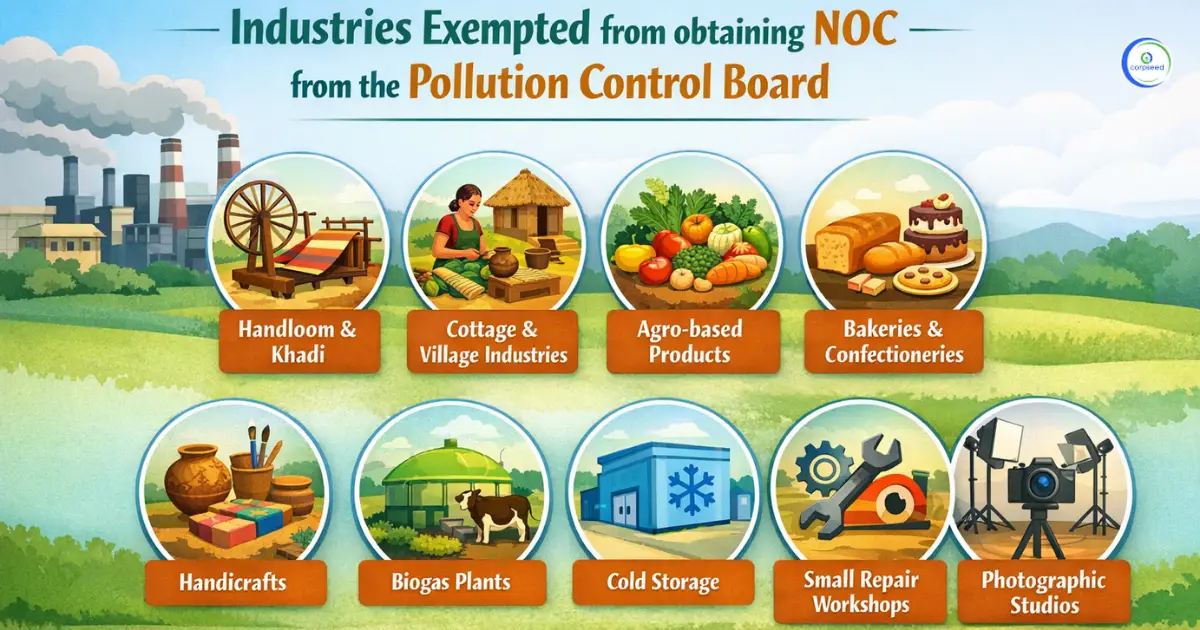
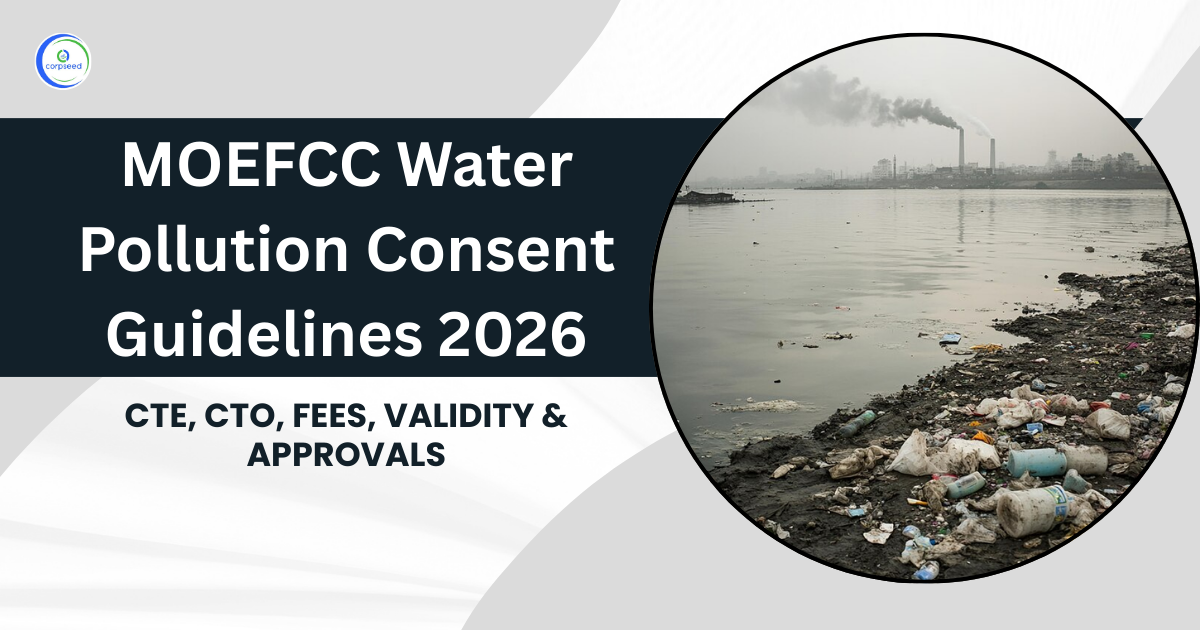
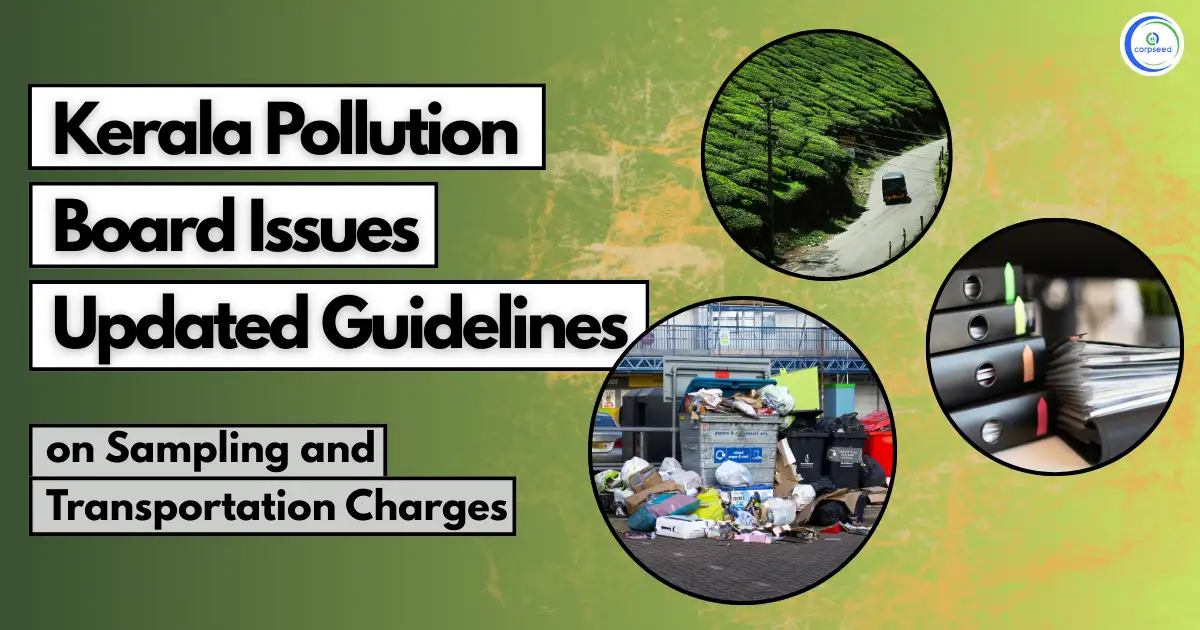
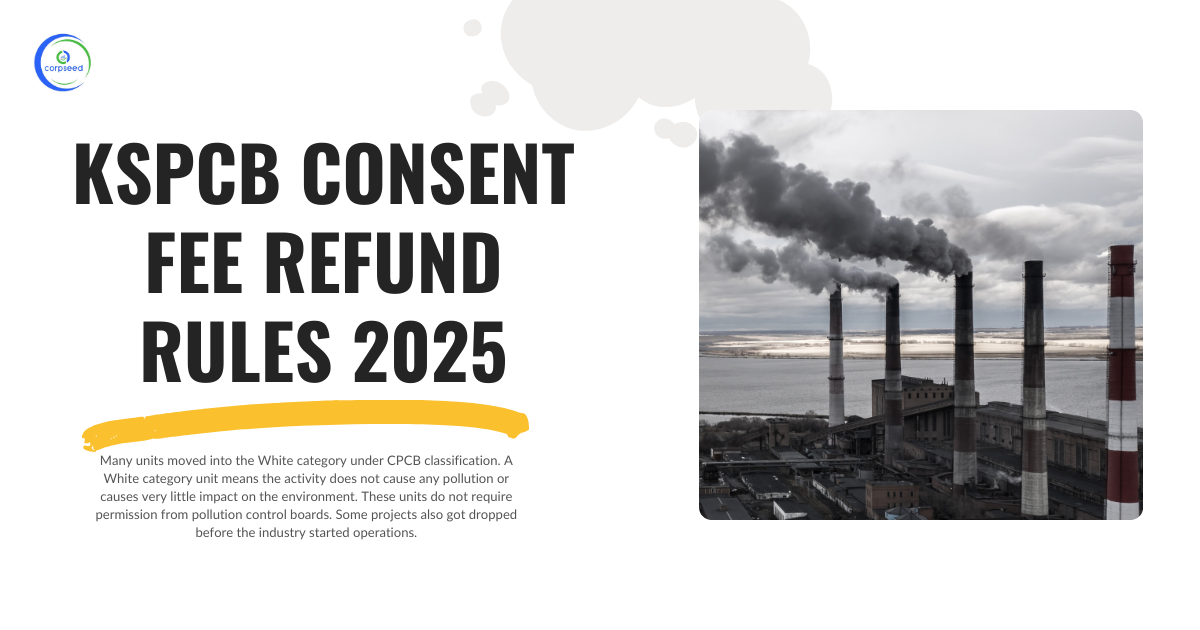
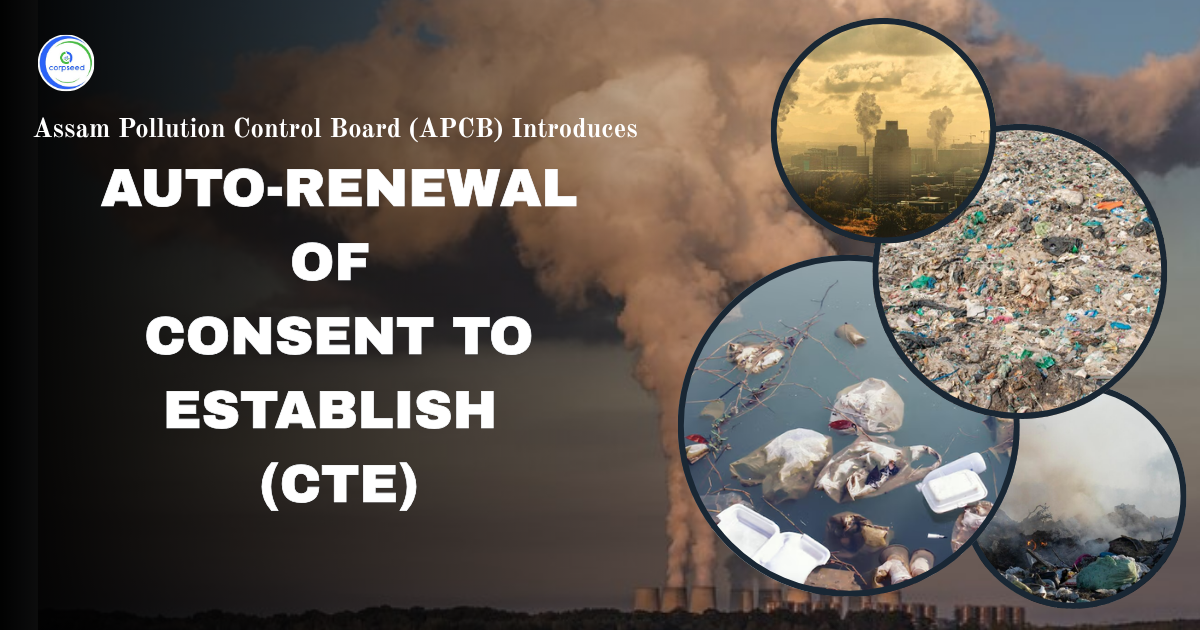

.webp)
